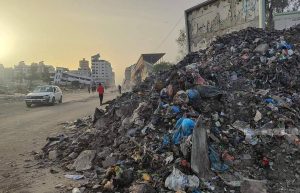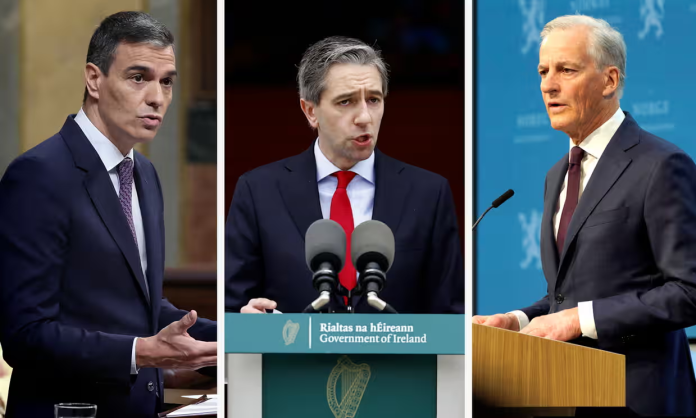After Ireland, Norway, and Spain recognised Palestinian statehood, Israel announced that it would withdraw its ambassadors.
According to Euractiv, Spain’s Prime Minister Pedro Sánchez stated that his country would recognise a Palestinian state on May 28.
It is the right thing to do.
Sánchez defined the territory of a Palestinian state as “Gaza, the West Bank, with East Jerusalem as its capital.” Slovenia has also signalled that it will follow suit by June 13, once its parliament votes on the issue.
Shortly after Sánchez’s statement, Israeli Foreign Minister Israel Katz stated on Wednesday, May 22, that he had “instructed the immediate recall of Israel’s ambassadors to Ireland and Norway for consultations in light of these countries’ decisions to recognise a Palestinian state.” He also argued that recognition would hurt efforts to return the 128 hostages still held in Gaza.
If Spain follows through on its intention to recognise a Palestinian state, a similar step will be taken against it.
The recognition of Palestinian statehood comes after a growing number of European leaders and officials have indicated they would support a two-state solution in the Middle East. Some also see the recognition as a political tool to pressure Israel to accept a two-state solution, despite the Netanyahu government’s hostility to the idea. Moreover, EU member states have imposed sanctions against Israeli settlers for attacks on Palestinians in the West Bank.
European governments should also use this as an opportunity to press Palestinian President Mahmoud Abbas to implement a package of reciprocal steps to revive Palestinian institutions and restore national unity.
Finance Minister Bezalel Smotrich demanded “harsh punitive measures” against the Palestinian Authority. He also announced a halt to the transfer of tax funds to the Palestinian Authority, The Times of Israel reported.
Israeli forces advance in Rafah
Israeli tanks approached the outskirts of a densely populated neighbourhood in the centre of Rafah on Wednesday in one of the most intense overnight bombardments of the southern Gaza city, according to Reuters.

Israel’s attack on Rafah on Gaza’s southern edge has displaced hundreds of thousands of people from shelter for half of the enclave’s 2.3 million people. It also cut off major aid routes into Gaza, sparking international fears of mass casualties and starvation.
Residents and militants said that on Wednesday tanks took up new positions further west than before, along the southern border with Egypt. The vehicles are now advancing on the outskirts of the Yibna neighbourhood in the centre of Rafah. However, they have not yet entered the neighbourhood due to intense fighting.
There has been no stopping of Israeli fire all night, from drones, helicopters, warplanes, and tanks. Tanks made a limited push southeast, still limited but they have advanced under heavy fire all night.
Israeli authorities claimed the military killed several militants in targeted operations in Khan Younis just north of Rafah and in the northern Gaza Strip. Troops returned there in a major operation in an area where they said they defeated Hamas months ago.
Why Middle East needs Palestinian statehood
The United Nations Relief and Works Agency for Palestine Refugees in the Near East (UNRWA) estimated that, as of Monday, more than 800,000 people have fled Rafah since Israel began attacking the city in early May.
Meanwhile, protesters against the war in Gaza interrupted US Secretary of State Antony Blinken’s speech in Congress, according to US media. The security guards reportedly took a man with a Palestinian flag and a woman with a placard out of the hall.
More than 35,000 people have been killed in an Israeli attack since October 7, 2023, according to Gaza health authorities. Authorities fear thousands more could be buried under rubble.
Health officials said that “in the central Gaza Strip town of Zawayda, an Israeli air strike killed seven people in one house.” On the northern edge of the Gaza Strip at Jabalia, the largest of Gaza’s eight historic refugee camps, Israeli forces continued a ground offensive that has run parallel to the Rafah offensive for a fortnight.
